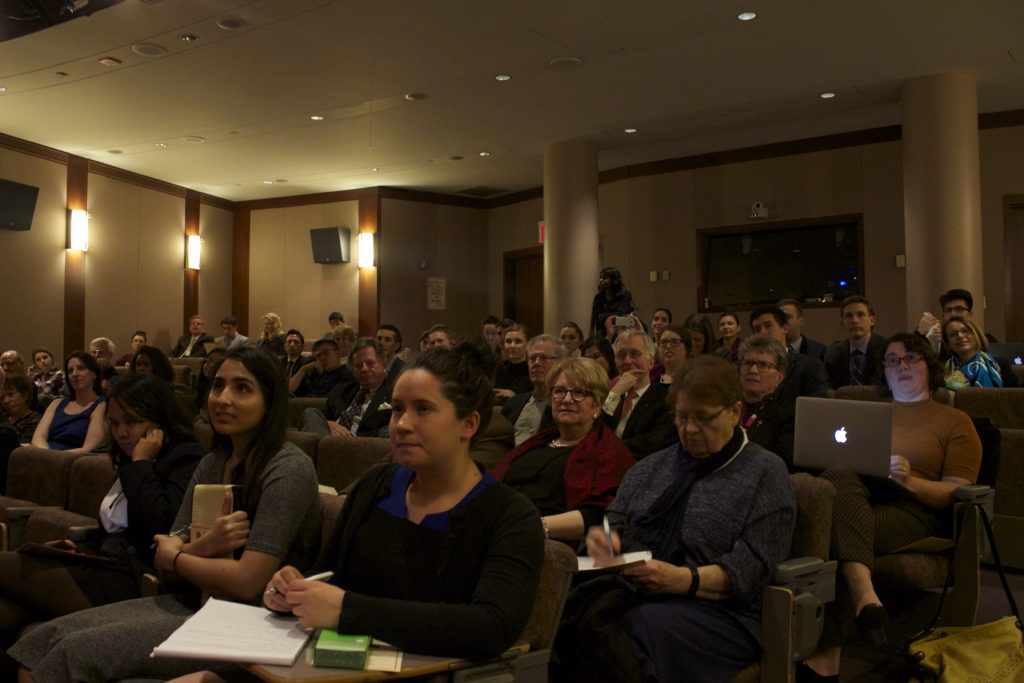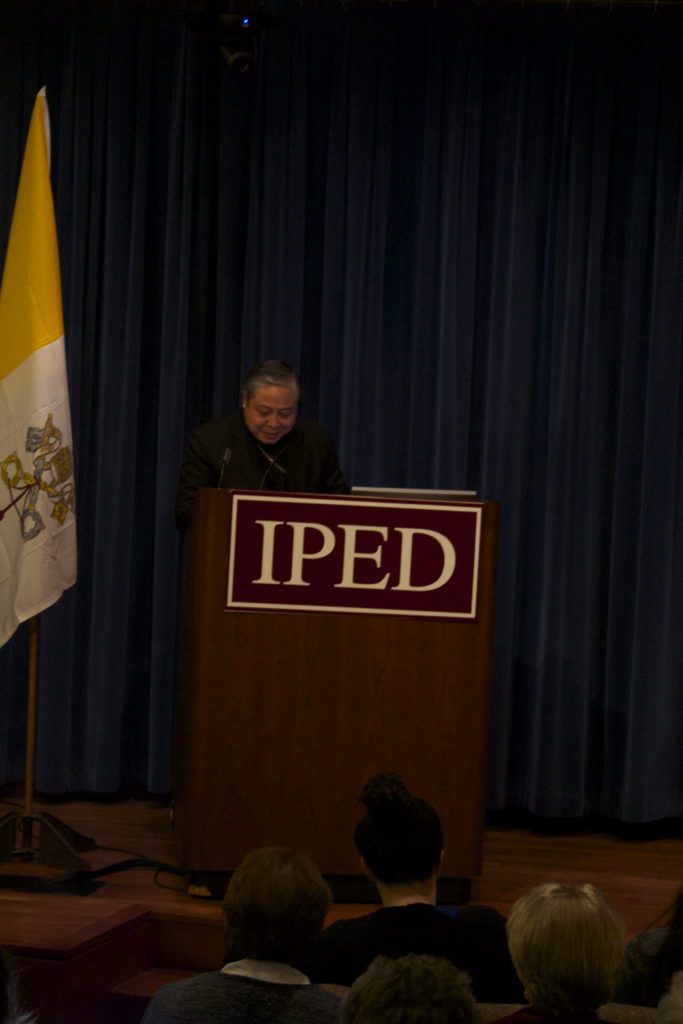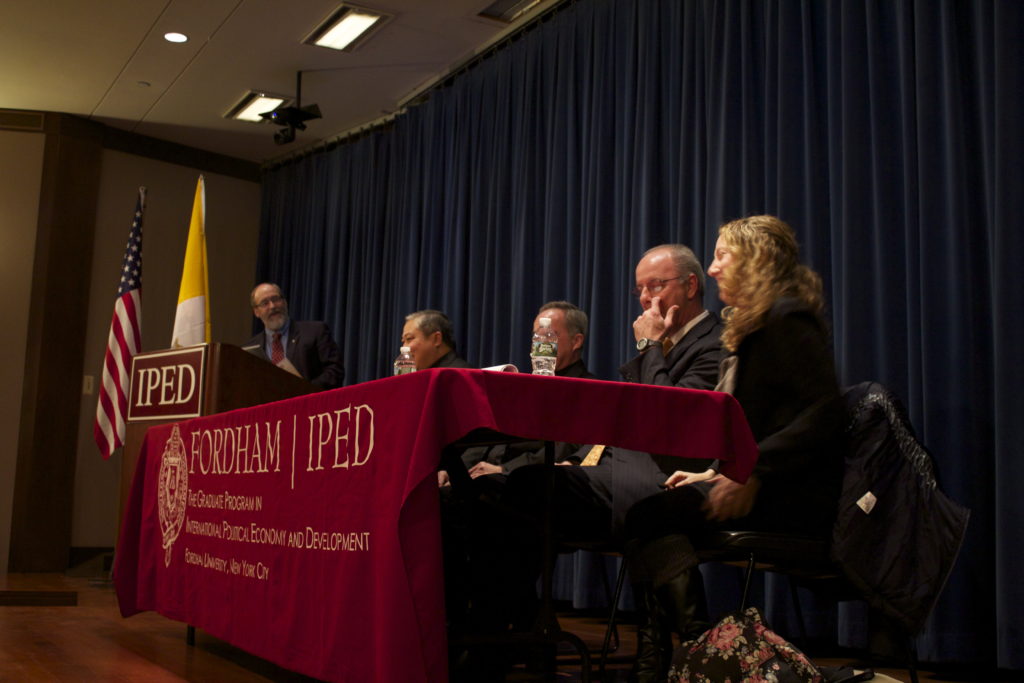On February 23, 2017, the US branch of the Vatican Foundation Centesimus Annus Pro Pontifice and Fordham University co-sponsored the inaugural lecture of the Cassamarca Foundation Chair in Migration and Globalization, titled: “The Holy See and the Fight Against Human Trafficking.” The conference examined the realities of human trafficking today, what is being done, and what opportunities there are going forward.

Falling Prey: Human traffickers set their sights on refugees
In 2015, nearly 250 million people moved across international borders. Of these, over 60 million people moved as a result of war (i.e. forced migration), and many of these asylum seekers are being targeted by traffickers.
“Human Trafficking has found an advantageous environment in which to work. Refugees are willing to take any risk. They are vulnerable.” said Archbishop Bernardito Auza, Pope Francis’ Representative to the United Nations.
On February 23rd, Fordham University’s graduate program in International Political Economy and Development (IPED) hosted a Consultation on Human Trafficking at which Archbishop Auza served as the event’s keynote speaker. “How many persons are victims of human trafficking?” he asks. “The honest answer is that the number is staggering, and nobody really knows!”

Apostolic Nuncio, Permanent Observer of the Holy See to the
United Nations
Although there can be no definite numbers, the Archbishop shared estimates from a well-cited 2012 study by the International Labour Organization (ILO) that there are “about 21 million men, women and children who are trafficked, sold, coerced or subjected to conditions of slavery in various forms and in various sectors.” These figures continue to grow, especially in recent years, and as millions of refugees flee their homes, human traffickers are capitalizing on the opportunity.
“The flood of trafficking victims has multiple tributaries”, said Archbishop Auza, who shared that Pope Francis identifies four different causes to be economic, environmental, political, and ethical.
The Archbishop then offered two brief points for reflection: “First, the importance of a faith actively manifested in deeds. Pope Francis wants those who are religious to find in their faith the deepest motivation for leadership and involvement in this fight.”
“Second, deeds sustained by the hope that, together, we shall overcome.” As an example of overcoming such a colossal crime against human dignity, Archbishop Auza made reference to the historical politician and philanthropist, William Wilberforce, who was a leader of the movement to eradicate the slave trade in Britain.
“It took William Wilberforce only 20 years to end the British slave trade and only 30 more to abolish the slave trade across the globe, at a time when slavery was as accepted as natural as birth, marriage and death.”
Human trafficking must never be accepted. It is “a crime that’s occurring in our own backyards, it’s under our noses, and we cannot ignore it” said Archbishop Auza. He then went on to quote Pope Francis: “We must raise awareness of this new evil which, in the world at large, wants to be hidden since it is scandalous and ‘politically incorrect’.”
The Archbishop then concluded his remarks by exhorting the audience: “Let us bring that Wilberforce in each of us to bear in our fight against human trafficking and others forms of modern slavery.”
A written summary of the presentations and discussions from the Consultation on Human Trafficking will be sent to Rome as input for an international conference on human trafficking, to be held at the Vatican on May 18-20. For a full transcript of Archbishop Bernardito Auza’s speech at Fordham University, click here.
Written by: Owen Fitzgerald
Owen is a first-year student in Fordham University’s Graduate Program in International Political Economy & Development.

